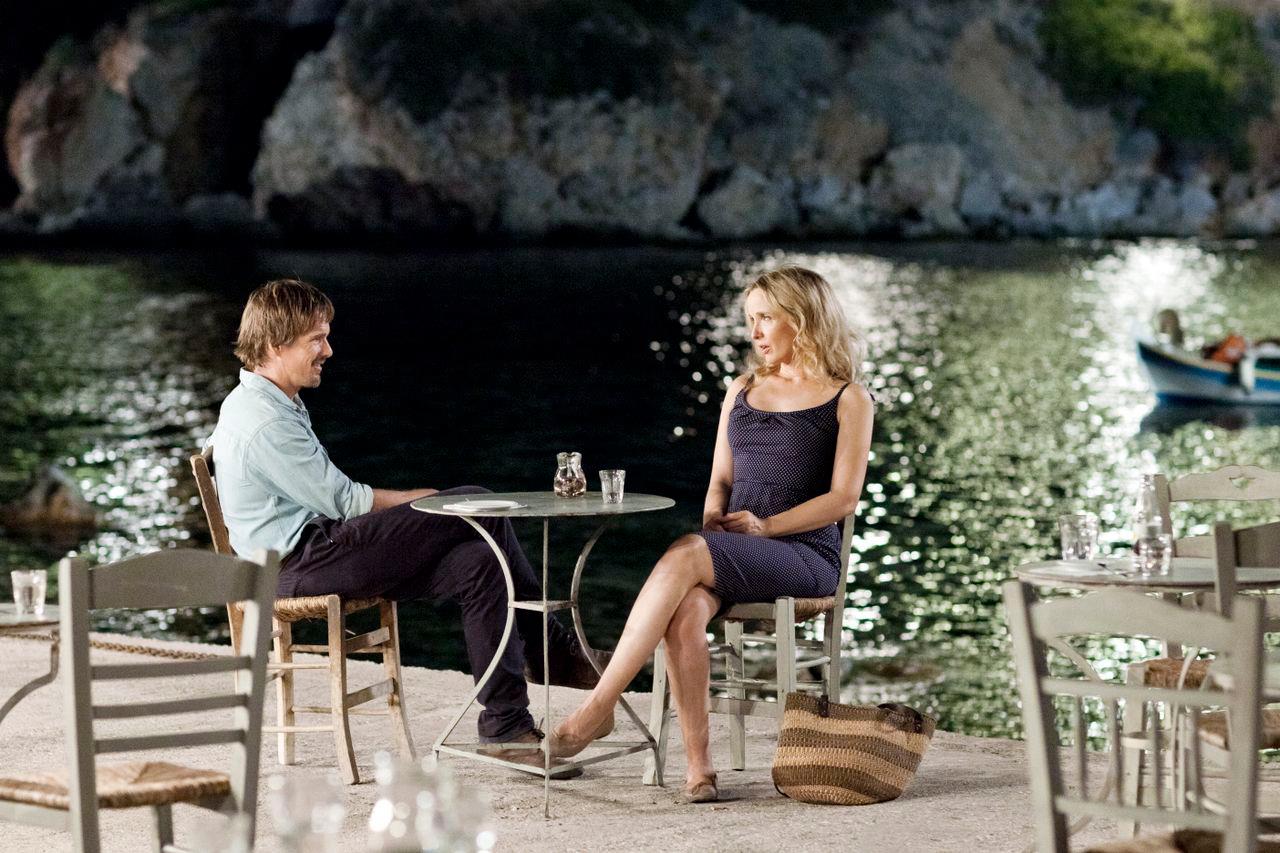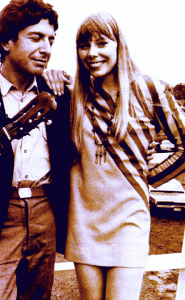Archive | Age Matters
The Magical Thinking of Before Midnight
 I first saw Scenes From a Marriage, Ingmar Bergman’s 1973 Swedish TV series, at the apartment of a man I’d been considering sleeping with for a while. He’d projected it against a wall painted white expressly for our screening, and we sat through about 45 minutes before he shut it off and turned to me. “This is not sexy,” he said flatly, and we promptly fell upon each other like wild dogs. The affair lasted four months, the precise length of time you can date someone before it deepens into something more serious. I wasn’t surprised. We’d consummated the relationship in the long shadow of a film that denied us any shared illusions about love before experience could do that for us.
I first saw Scenes From a Marriage, Ingmar Bergman’s 1973 Swedish TV series, at the apartment of a man I’d been considering sleeping with for a while. He’d projected it against a wall painted white expressly for our screening, and we sat through about 45 minutes before he shut it off and turned to me. “This is not sexy,” he said flatly, and we promptly fell upon each other like wild dogs. The affair lasted four months, the precise length of time you can date someone before it deepens into something more serious. I wasn’t surprised. We’d consummated the relationship in the long shadow of a film that denied us any shared illusions about love before experience could do that for us.
Before Midnight, Richard Linklater’s third film about the romance of Celine (Julie Delpy) and Jesse (Ethan Hawke) (not counting the couple’s cameo in the director’s animated Waking Life), is the first in this series that smacks of Bergman—that Bergman, in particular. That’s a big old blast of relationship reality. And no matter how well-rendered, it isn’t the movie magic we clamor for even when it’s what we need. I’m not convinced we ever do.
Before Sunrise (1995) began as Celine, a French university student, and Jesse, an American wandering on a Eurorail pass, met cute as strangers on a train. After a bit of banter, the two jumped off in Vienna, reveling in their connection as they chattered on prettily cobbled streets. That film took visual and narrative cues from its 20something stars—magnetic and effusively philosophical—and left us to moon about the road that might stretch before them. Would they regret it if they did not reunite a year later? Would they regret it if they did? It was a perfectly earnest romance for a generation that didn’t earnestly care about anything, and I floated in its reverie for months. Somewhat improbably, it also spawned a terrific franchise (a subversion of the term, yes) built upon all that chattiness: Celine and Jesse were such well-developed characters that they could reanimate without stumbling like scary zombies.
Before Sunset (2004) found them leaner and more resigned, the elapsing nine years having stripped them of more than just baby fat. Jesse was now an unhappily married father on his first international book tour; she, a single-ish environmental activist who was disillusioned both professionally and romantically, at least partly because their reunion never took place. After she surprised him at a Parisian reading of his work, the two took a walk and, along the way, slowly, slightly sadly made their way back to each other. Though the two never actually had sex in this film, it’s far sexier than its predecessor. Because they had already been disappointed by love, life, and each other, their chemistry was more informed, more dangerous and, by the transitive property of sexual attraction, more magical. As the film drew to a close, she was singing Nina Simone as Nina Simone, and he was about to miss his plane back to New York. A perfectly earnest romance about a generation that no longer could afford not to earnestly care about something. I cried in grateful recognition that true connection was still possible, even between a film and myself.
Before Midnight is the first in this series that didn’t make me cry. It is also the first that focuses upon a relationship that not only has had time to bloom but to wither on the vine. It opens at a Greek airport as Jesse, now 41, is bidding goodbye to his son about to return home to New York, where he lives with his mother. The teenager is sweetly patient with his distraught father but also removed: a good kid acquainted with his parents’ failings long before he should have been.
Wrecked, Jesse wobbles outside where Celine, jabbering into a cell phone, waves. They climb into their car, and, while their two golden-haired daughters sleep like tiny Celines in the backseat, begin to talk. Since we’ve just witnessed Jesse’s heartbreak, it’s a shock that the conversation begins with Celine telling him about a new job offer. Enter the sometimes brutal, if necessary, indifference required to sustain daily life in a long-term romance. Continue Reading →
For Most Great Artists, We Find a Season (Even in the Bowels of February)

Eve Babitz and colleague
The wonderful writer Eve Babitz, whose essays about mid-century LA evoke a paradise lost that has become meta since she stopped publishing two decades ago, tells a story about the first time she tried caviar. When she realized it didn’t appeal to her, she simply put it down and decided to wait until it did. She wasn’t, she declared, about to become a person who didn’t like caviar. And when, decades later, she was offered the highest grade of Russian caviar atop a perfect silver spoon with a perfect dollop of crème fraiche, she finally became a person who did.
That’s how I feel about certain artists. There are some I’ll never dig, like the Beach Boys. (Their paradise lost doesn’t appeal to me; I blame their thin-voiced harmonies.) And then there are some who I haven’t experienced in the correct context. Yet. Whether I am wallowing in such melancholia that I can’t surrender to their joy, have not achieved the gravitas for their depth, or just really, really need that silver spoon, there are some artists whose innate value I grok but have yet to fully embrace.
Certainly one of the great pleasures of being on the planet for a while is not only growing out of some passions but also growing into others. When I was a young person, Ella Fitzgerald seemed forced but by the time I’d weathered some serious sorrow, I recognized her cheer stemmed from a choice to not wallow in her own hard times—that she shone colors I’d never have recognized lest I’d made that choice myself. The rush of Beethoven seemed less ecstatic than bombastic when I played violin, but now that I am a mere listener I can ride his tidal waves as gaily as everyone else does. It wasn’t til I dated a Bolognese man that I summoned the patience for Michelangelo Antonioni. The joyous complexity of nonvocal jazz never registered with me until I learned to shut the fuck up rather than sing along. And it wasn’t until I became a grown-up lady that my own concern with money and manners brought me to Edith Wharton’s.
So I guess I’m just waiting for my Leonard Cohen revelation. I adore his influence: Who else can claim to have inspired a trio of songs as tremendous as Joni Mitchell’s “A Case of You,” “Rainy Night House” and “That Song About the Midway?” I adore covers of his work: Like pretty much everyone else, I cry whenever I hear Jeff Buckley’s cover of “Halleluja.” But the moment still hasn’t arrived when Cohen is the only person I want to hear. It’ll come, though. I’m a little afraid of what may happen in my life to make his singularly sweet, deceptively simple sadness essential but I feel it coming.
I’m happy to wait.

